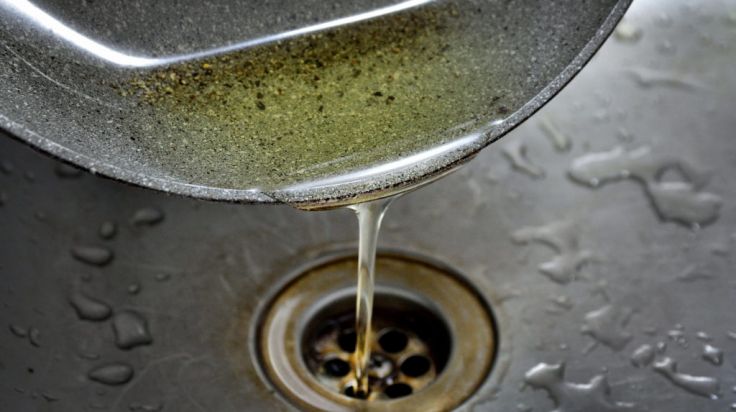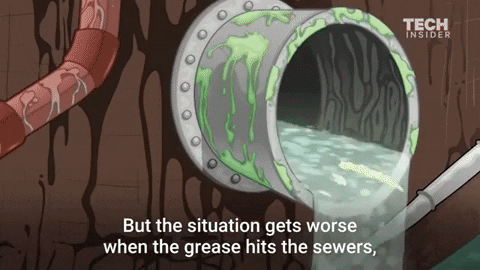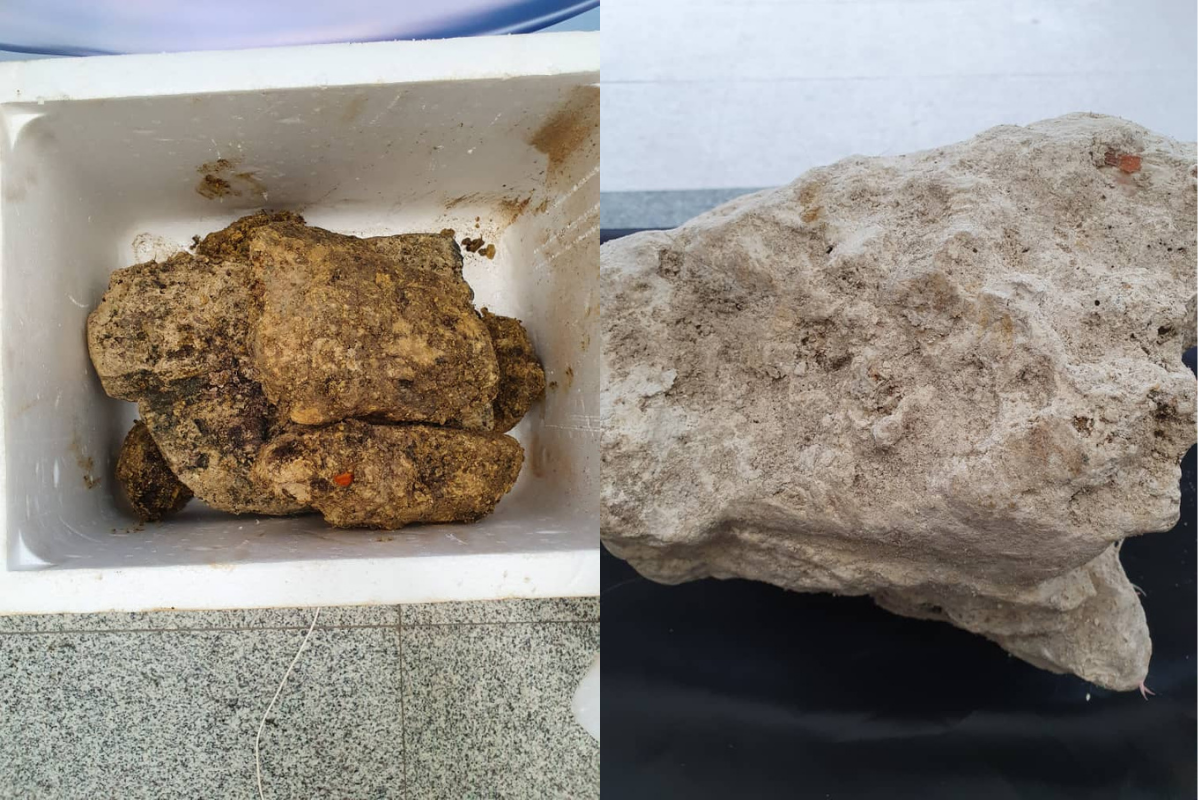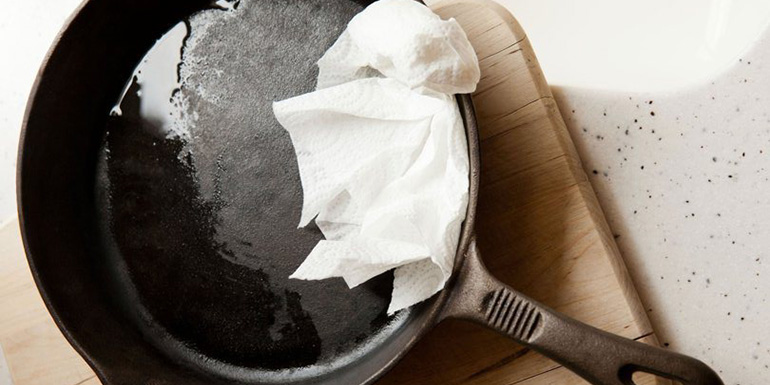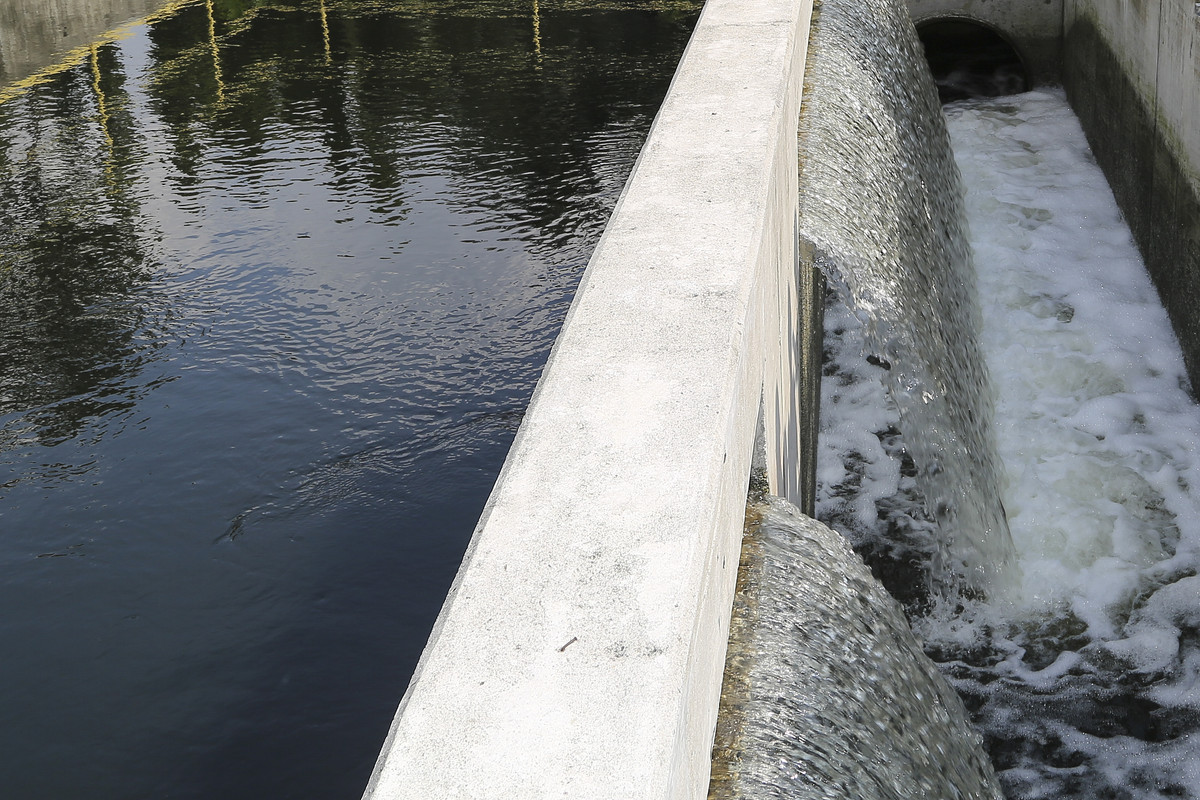PSA: You Should Never Pour Leftover Cooking Oil Into The Sink
It can clog up your pipes, or even cause sewage waters to flow back into your sink!
Many Malaysians make the common mistake of pouring leftover oil into the sink after cooking
While it may seem like the easiest way to get rid of waste, you’re actually not supposed to throw out leftover fat and oil down the sink. Doing this can cause grease to build up in your pipes, clogging them up over time and making it hard for water to flow properly.
But that's not all. According to Tech Insider, "the situation gets worse when the grease hits the sewers where it combines with everyone else's fats and greases."
These fats get broken down over time, becoming fatty acids and glycerol that bind with calcium in the sewers. This creates a soap-like compound or 'fat globs' that stick to the sewer walls. Eventually, they can accumulate into 'fatbergs' that clog up sewer pipes. When this happens, sewage water may flow backwards, spilling onto the roads, rivers, and even back into your house!
Not only will everything smell bad, it can also be very difficult to clean.
Here's a closer look at pieces of hardened fatbergs that were removed from pipelines in Malaysia by Indah Water Konsortium Sdn Bhd
Nevertheless, you can be part of the solution by disposing your used cooking oil responsibly
When you're dealing with grease and cooking oil, the first thing you should do is wait for it to cool down. Next, if you have a big amount of oil, empty it into a jar or container and throw it away in the bin. Before washing your oily frying pan and food containers, you should also soak up the excess oil with kitchen rolls and throw them into the rubbish bin.
For sewerage company, Indah Water, it takes a lot of time and money to clear clogged pipes
On average, unclogging costs around RM1,400 per pipe. In 2015, Indah Water spent RM26 million just to unclog pipes all over Malaysia. There are various factors that contribute to clogged pipes, from leftover waste you wash down your sink and whatever you flush down your toilet, to the rubbish that irresponsible people throw into the drains.
Fat, oil, and grease (FOG), a by-product of food preparation and cooking, is also one of the factors that may cause sewer blockages and water pollution. That’s why it’s important for restaurants and food courts to have proper waste management to prevent the buildup of ‘fatbergs’ in our sewer pipes.
In light of this issue, Indah Water has signed an agreement to provide desludging services for FOG trap systems in restaurants and food courts
Not only will this reduce FOG pollution on the environment and water sources, it will also address the problem of clogged sewer pipes due to improper FOG disposal. This is in line with the Green Technology Master Plan 2017-2030 towards environmental sustainability.
Indah Water is also currently working alongside shopping malls, fast food chain outlets, hotels, school canteens, factories, food courts, as well as with local authorities to strengthen enforcement and service provision.
On top of that, Indah Water is working on a project to convert FOG into environmentally-friendly biodiesel fuel
While still in developmental stages, this project aims to transform a waste product like FOG into an alternative fuel source produced from renewable sources. Not only is Indah Water helping to reduce FOG pollution, they are also exploring innovative ways to become greener and more sustainable.
Find out more about Indah Water and what they do on their website, or follow them on Facebook and Instagram. Plus, don't forget to dispose your oil responsibly! :)
If you would like to obtain FOG trap desludging service from Indah Water, you can contact their unit offices or visit their website today.
